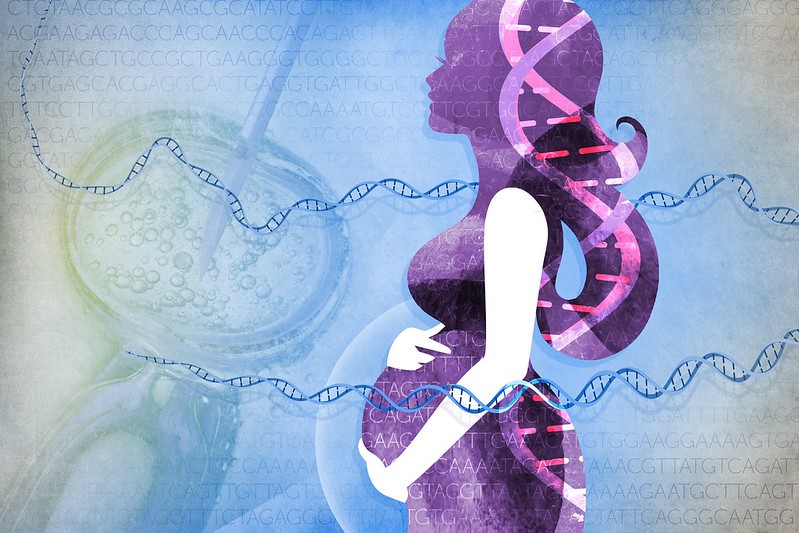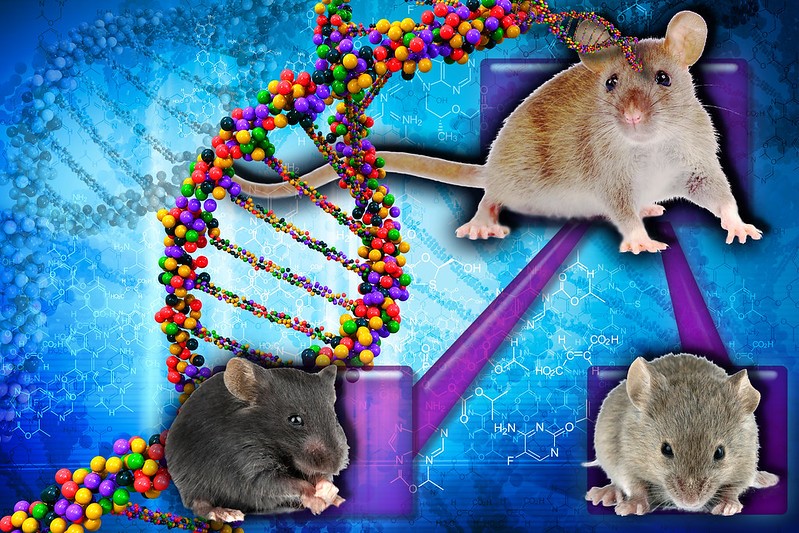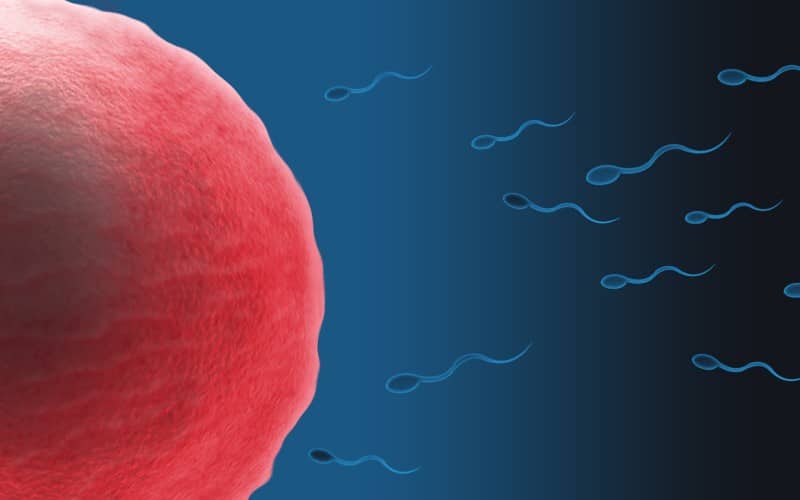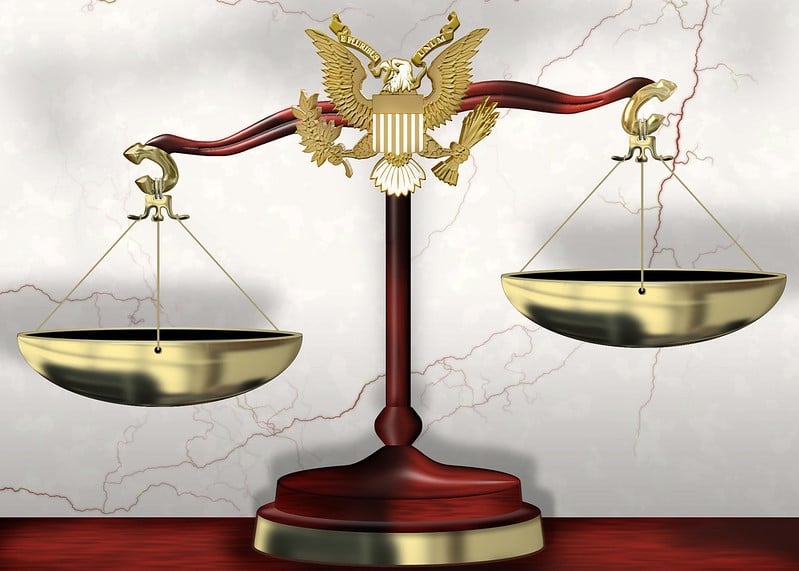
What is life? Better yet, when does life begin? These are questions philosophers and scientists have debated for hundreds of years. If you ask a scientist, “what is life?” you’d get a very different answer than if you ask a philosopher.
The above two questions are fun brainteasers. But beyond the academic pursuit of knowledge, these questions have legal and moral ramifications for the abortion debate. If life begins at conception, then that life is protected under the Constitution. However, if a fetus is only a “potential life” and not a “life,” as was found in Roe v. Wade, then the fetus doesn’t yet qualify for protection under the Constitution.
So, what do we know about life? Let’s look at what science tells us about life and see if this knowledge can, and should, inform our opinions about abortion.

What is Life?
It should be noted that there isn’t a universal definition for life. In fact, according to NASA, defining life is a question that “affects whole branches of biology, biochemistry, genetics, and ultimately the search for life elsewhere in the universe.” Further, the answer you’ll get from asking a theoretical physicist, “what is life” will differ from the answer you’ll get from a biologist.
Still, even with potential discrepancies between scientific fields established, some universal agreements across all scientific fields of study about what constitutes “living” are possible. Specifically, NASA states that to be considered a “living thing,” an organism has to be decidedly organized and complex (made of cells and have a genetic code), have the ability to take in energy from the environment and transform it (metabolism), have internal homeostasis (maintain relatively stable conditions necessary for survival), respond to stimuli, and have the potential for growth and reproduction.
According to science, if a creature meets some variation for all these criteria, it qualifies as “living.”
To further help simplify the above and establish a working definition of life, NASA’s Exobiology Discipline Working Group broadly defined life as “A self-sustaining chemical system capable of Darwinian evolution.”
Applying the above criteria shows that a virus is not a living organism because it doesn’t have self-sustaining actions — viruses don’t collect or use their own energy. Instead, viruses steal energy from the cells they infect and don’t need any energy when they’re outside a cell.
Additionally, viruses can’t reproduce by themselves — they have to take over the machinery of other living cells. On the other hand, bacteria can respond to the environment, grow and change, reproduce, maintain homeostasis, transform energy, and are complex. Consequently, bacteria are considered living.
Once fertilized, the single-cell embryo is called a zygote. This cell divides and contains a full genetic code, meaning it’s complex and organized. Also, upon fertilization, the egg cell’s metabolism is activated, and the zygote starts to regulate how much nutrients to take in, meaning it maintains homeostasis. The zygote also responds to platelet-activating factor (Paf), whether synthetic or produced by the zygote, meaning the zygote responds to stimuli.
Upon fertilization, the zygote begins to divide and increase the number of cells and has all the characteristics it needs to reproduce. As such, the zygote satisfies the requirement for the potential for growth and reproduction. Consequently, a zygote is a living thing, according to science.

When Does Life Begin?
Because the scientific “answer” to the question “what is life” is so complex, you might assume the scientific answer “when does life begin” is also complicated. In truth, that’s not the case. According to science, life begins at conception.
Consider the following from Dr. Dianne N. Irving, writing for Princeton’s International Journal of Sociology and Social Policy, “upon fertilization, parts of human beings have actually been transformed into something very different from what they were before; they have been changed into a single, whole human being. During the process of fertilization, the sperm and the oocyte cease to exist as such, and a new human being is produced.”
Dr. Liah Greenfeld of Psychology Today states, “The life of an animal organism, obviously, begins at conception.”
And the American College of Pediatricians says, “The predominance of human biological research confirms that human life begins at conception—fertilization. At fertilization, the human being emerges as a whole, genetically distinct, individuated zygotic living human organism, a member of the species Homo sapiens, needing only the proper environment in order to grow and develop. The difference between the individual in its adult stage and in its zygotic stage is one of form, not nature. This statement focuses on the scientific evidence of when an individual human life begins.”
Indeed, in a recent survey of over 5,577 academic biologists from 1,058 academic institutions, 96 percent affirmed that life begins at fertilization. Moreover, 89 percent of the biologists surveyed said they consider themselves “liberal.”

Complicating Life
When you examine the requirements for “what is life” and “when does life begin,” it’s easy to see that, scientifically, a zygote is considered life, and has all the characteristics of something living. Why, then, isn’t it protected under the Constitution?
That answer requires the introduction of philosophy, and specifically ontology. Ontology deals with the question of being and existence. As such, ontology in abortion brings forth questions like when is a fetus a person? When should a fetus’ rights trump the rights of the mother? And, when does a fetus acquire obligations like protection under the law?
What’s important about the above is that it requires a sidestepping of science. Science has already answered when a fetus should have protection — the Constitution requires the protection of human life (unless due process has occurred). That human life isn’t first required to meet certain obligations (meaning, the Constitution doesn’t say life must be capable of survival, have the capacity for pain, etc.).
Thus, when someone argues that abortion should be legal because the rights of the mother trump that of the fetus, it’s important to recognize that they’re using a philosophical argument, not a scientific one.

Science is Science
Abortion is a touchy subject, and both sides of the debate are deeply entrenched in their beliefs. But that doesn’t mean logic and scientific rationale don’t have a place. Indeed, according to science, abortion destroys a living thing and is the taking of human life. That’s a factor that merits consideration.
Conversely, arguing about personhood and rights is a philosophical argument. Bacteria are living, and we regularly use antibiotics when we’re ill — in this instance, the rights of the infected person trump the rights of the bacteria. But we still recognize that we are killing something.
Regardless of where you fall, academic honesty is important when forming opinions and engaging in debate. Thus, the question becomes: Should science drive abortion legislation or should philosophy?










More questions and unsolved problems. If we go further back to the elemental composition composition of the cells and to their elemental functions it all boils down to molecular structures and electron transfers. That makes any definition of life strictly one of atomic/molecular structure and electric activity. It still does not answer the questions about life. Any answer is only one of acceptable definition.
[…] https://themaverickobserver.com/when-does-life-begin-according-to-science/ […]
[…] https://themaverickobserver.com/when-does-life-begin-according-to-science/ […]